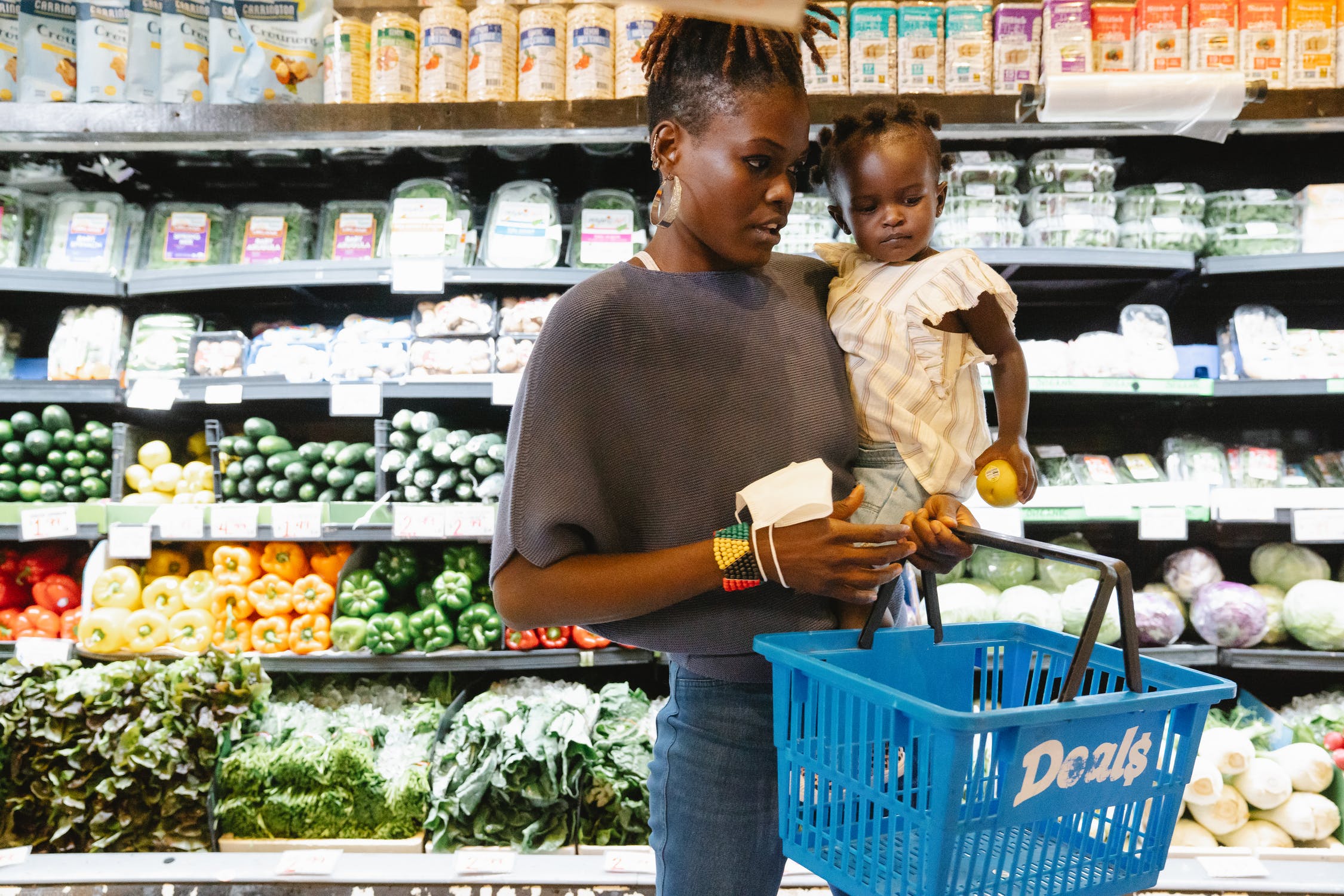Regret, Anxiety, Guilt, or Ambivalence: Are These Normal Feelings As A Parent?
One time, when my baby was just a tiny thing, I forgot to change their diaper for hours. Blurry with sleep deprivation, I could not figure out why he was crying. Hours later, when I realized the tiny poop smear had given him a massive diaper rash, I smacked my forehead. “I’m so sorry, sweetie,” I whispered to him. I felt so bad.
We’ve all made mistakes as a parent. So when I talked to Alexandra Sacks, MD about the transition to motherhood and all of the complicated feelings that arise during this massive adventure, she reassured me that we’ve all been there. In our interview, I asked her to talk about matrescence, which is the transition to motherhood, and what to expect when you’re dealing with the enormous life change that is becoming a new parent.
In this conversation, we talk about the trope of the “bad mom,” and the mistake in thinking that motherhood should be all bliss and joy. She shares some of the most common feelings that patients often share behind closed doors, and why our imperfections are exactly what our kids need.
FIVE QUESTIONS WITH ALEXANDRA SACKS, MD
This is based on Episode #110 of The Startup Parent Podcast and has been lightly edited for clarity.
What is matrescence, and why is it so important?
I think that we need to do a better job educating women about what sorts of psychological experiences they’re going to encounter during pregnancy and new motherhood. These changes include identity shifts, hormone changes, relationship changes, and body changes. All of those changes run the gamut from blissful, the best day of my life (which I think we hear about already) to anxiety-provoking and guilt-inducing. These are all natural, normal feelings and psychological phenomenon that women experience.
Matrescence is the identity transition that happens around pregnancy and new motherhood. Going through this diversity of emotions doesn’t necessarily mean that you have postpartum depression at all. It’s natural to the course of matrescence. So that’s the heart of what I’m doing right now is the reproductive psychiatrist.

What do you think cultural stories of motherhood are missing or getting or getting wrong?
We need to talk about what I call the “Bliss Myth.” It’s not to say that moms don’t experience bliss, I think they do. I think it’s rare that I encounter a mom who hasn’t had moments of sheer joy in this journey.
But just like in every relationship, it’s not all joy. It’s not all bliss. We know that to be the case for marriage. We know that to be the case for how people relate to their careers and relate to their own parents. So where did we get the concept that motherhood was supposed to be this constant, single note of joy?
You know, I think it’s really hard for us in our culture to learn how to understand how emotions often live in the gray area. In psychology we call that ambivalence—where you can feel happy and sad, where you can feel excited and nervous at the same time. I think it’s a natural human state. Our lives are so rich emotionally. We can be both thrilled that we’re becoming a mother, and sad that we’re leaving that sort of private, spontaneous time in our romantic lives with our partner where we were unencumbered by by childcare. You can feel both at the same time.
I think we need more opportunities in our culture to talk about the gray—to talk about how all sorts of experiences and relationships aren’t usually carved out into “good” or “bad”, but they’re usually “both-and,” which is really how human emotions work in all relationships.
In our society we have this idea of a “bad mom,” and it can make new mothers scared to do anything wrong in motherhood, or scared to admit that parts of motherhood are hard. Can you talk about this concept of the “bad mother”?
Yes. One of the most negative tropes that we have in our culture is the bad mother. We can think of examples in movie—it’s really the most evil character. We can also all identify with the child, because we’ve all been children. Plus, we all have had moments and wounds from our childhood where we we felt that we’re not loved or seen in the ways that we need it. No one wants to enter motherhood thinking that they might be a bad mother.
I think that in the face of this, people have sort of kept hush-hush around the ambivalent feelings towards motherhood, which are absolutely normal things—things like “I felt bored around my baby,” or “I wondered if if becoming a mother was really the right choice for me,” or “I wonder if I would have been happy on a different path in life.”
These are absolutely natural questions. These questions have nothing to do with loving your child enough, and nothing to do with giving your child’s everything they need to feel totally psychologically taken care of.
But I think because this fear of falling into the category of the “bad mother” is so intense, women have not spoken up about the natural emotions that are different from “bliss.” I think I take responsibility in the medical community that we haven’t always done a great job educating people about the gray area, and educating people that all the natural emotions won’t hurt your child.
It doesn’t hurt your child to say “I don’t always like the work of parenthood.” Disliking the work of parenthood in moments is not the same thing as not loving your child. You can love your child and simultaneously dislike doing the dishes. Those emotions are totally compatible with each other.
It doesn’t hurt your child to say “I don’t always like the work of parenthood.” Disliking the work of parenthood in moments is not the same thing as not loving your child.

What are things that are hard to talk about when it comes to motherhood?
Things that I think are really hard for people to talk about (these are in the book)—are things like:
- Finding out you’re having a boy when you wanted a girl and you feel secretly disappointed when you think you should feel happy that your baby’s healthy.
- Fearing childbirth, being terrified of giving birth—this is a common one.
- Feeling extremely disappointed in how your mother or mother-in-law steps in and helps or doesn’t help
- Feeling disconnected from your partner. In this time when you thought it would be the most bonding cozy moment as a family, and it’s nothing like what you expected.
These are all absolutely common things that people talk about behind closed doors in our offices. But I think people feel very taboo about admitting these in our culture.
Even things as large as miscarriage. I have patients who have told me, “I’m the only one of my friends who’ve had a miscarriage.” Statistically, it’s just not the case. Miscarriage rates are high. It’s that we just don’t talk about the common things enough for people to know in their peer group that they’re not alone.
What about the “good enough mother,” can you talk about this concept?
The good enough mother is a concept that was developed a long time ago by a British pediatrician who was also a psychoanalyst who worked with children, Donald Winnicott. He observed generations ago that women felt a certain pressure to be perfect. But that was impossible.
You can only be a human being with your child. You don’t have the option to click into being a superhero, because you’re just human. This means that you’re imperfect. It means that you’re an organic living thing that is unpredictable, you’re someone that makes mistakes. You’re just doing your best from moment to moment.
He saw that there were basic things that babies and children needed, things that were essential. We know what they are—a foundation of love, things like food, shelter, and safety. When you don’t have these basic ingredients, then we worry about kids, and we worry about attachment or neglect. But if you have them, and if you’re in a loving home where your basic needs are met, that is the foundation for growing up to be a psychologically healthy person. You don’t need a perfect mother.
When we strive to be perfect mothers, it can actually have a harmful effect on our children, because we may interfere with their growth and resiliency. If we’re always at their beck and call, preventing discomfort or struggle, it may interfere with their learning process and ability to develop and grow.
So we can’t be perfect. We’re humans, not robots. And the good news is, in order to raise a great healthy, emotionally sound, happy kid, you don’t have to be perfect. That’s what the good enough mother is all about.
When I had a six-month old, there was one night he just wouldn’t stop crying. He was fed, he was clothed, his diaper showed dry‚ I couldn’t figure it out. I found out in the morning that he had a poopy diaper and I felt like a terrible parent. I know he’s going to be okay in the long run. But I still have the residue or the emotional hangover. How do you help people deal with these feelings in motherhood? ?
I appreciate your candor about sharing that vulnerable moment for you. I think, in sharing moments where we we feel fragile and unsure of ourselves, we really change the Bliss Myth culture. The way to do it is just by what you did here—by sharing a moment where you might have made a mistake.
Because everybody’s been there. You forgot something, or you didn’t know something. And how do you forgive yourself? You know, I think it really goes back to this issue around control. And I think it’s about reminding yourself in a sort of humbling way, that you’re not all knowing and all seeing—you’re just not. It’s about reminding yourself that you are the best mother that your child needs.
Believe it or not, not checking the poopy diaper is exactly who your baby needs you to be. This is acceptance that who you are today is truly the person your child needs most, and that if you were replaced by someone who checked that poopy diaper, that your baby wouldn’t have you. Because that bond with you is more powerful than anything. That bond that attachment is the biggest, the biggest health-promoting thing your child is going to get. It pales in comparison to diaper rash.
You can’t control everything. You’re the best mom your baby needs. Sometimes you’re going to be tired and you’re going to forget to bring an extra bottle or you’re going to forget to check the diaper. But that’s that’s the moment of your humanity peeking through.
If you replaced yourself with a robot, that would not be better for your baby. Remind yourself that your baby needs you, warts and all.
Later on in life, where it’s a moment where you might lose your cool. Let’s say you’re in traffic and you yell at another car, and then you have a moment of shame and regret—you think, “oh, I don’t want to be someone who loses my temper.” But it’s being imperfect around your children gives them the example that they too are allowed to make mistakes, that they don’t have to feel ashamed and self critical when they catch themselves in human moments of making human errors.

It’s being imperfect around your children gives them the example that they too are allowed to make mistakes, that they don’t have to feel ashamed and self critical when they catch themselves in human moments.
That’s part of psychological health: it’s acknowledging and admitting, “I made a mistake,” and figuring out how you can learn from it and grow. We call that grit. And grit is one of the most important things you can teach a child that will help set them up for future success. So yes, you know, today it’s a poopy diaper and your child may not learn from it. But in truth, moments of physical frustration in limited quantities are part of how babies grow and learn how to solve.
Over time, giving yourself permission and accepting that you’re this imperfect human who’s there to raise your kids is going to allow them to love themselves when they recognize their own human imperfections. And that is really important for preventing things like depression or destructive self criticism that can be oppressive to children if they get the message that everyone in their house is perfect—if you’re a perfect mom, then what happens when a child encounters their own perfect imperfection, and has to face it? Leaving space for your own humanity is a very important example for your children.
—
LISTEN TO THE ENTIRE EPISODE:
To listen to the full conversation with Dr. Alexandra Sacks, find Episode #110 of The Startup Parent Podcast wherever you listen to podcasts.
Listen to The Startup Parent Podcast on Apple ★ Spotify ★ Google ★ Overcast ★ Stitcher ★ Castbox or wherever you listen to podcasts. Find another podcast player or the RSS feed here.
ABOUT ALEXANDRA SACKS, M.D
Dr. Alexandra Sacks is a reproductive psychiatrist and the leading expert on “matrescence,” the transition to motherhood that is as demanding and transformative as adolescence. She is known her TED talk with over 2 million views, and in her article “The Birth of a Mother,” the number one most read piece of 2017 for the New York Times “Well Family” section. She is the host of Motherhood Sessions, a podcast by Gimlet Media, and the coauthor of What No One Tells You: A Guide to Your Emotions from Pregnancy to Motherhood published by Simon and Schuster.
ABOUT THE STARTUP PARENT PODCAST
If you're growing a business, leading a team, or figuring out entrepreneurship and you have kids, this podcast is for you. We go in-depth with founders and entrepreneurial parents about what it really takes to have babies, grow businesses, and get a little bit of sleep. Sign up for the newsletter to get new episodes in your inbox. And leave us a review on iTunes.
Listen to The Startup Parent Podcast on Apple ★ Spotify ★ Overcast ★ Stitcher ★ Castbox or wherever you listen to podcasts. Find another podcast player or the RSS feed here.
